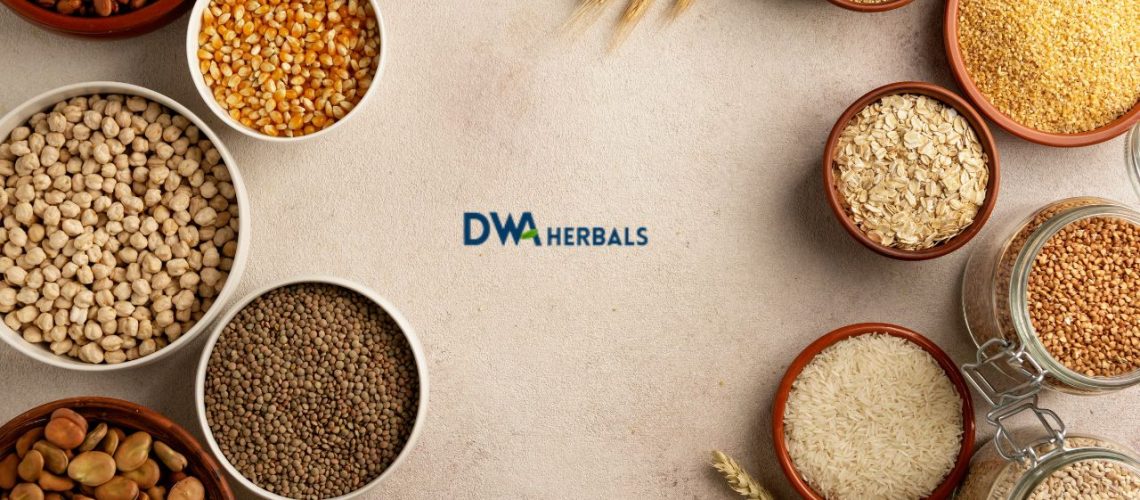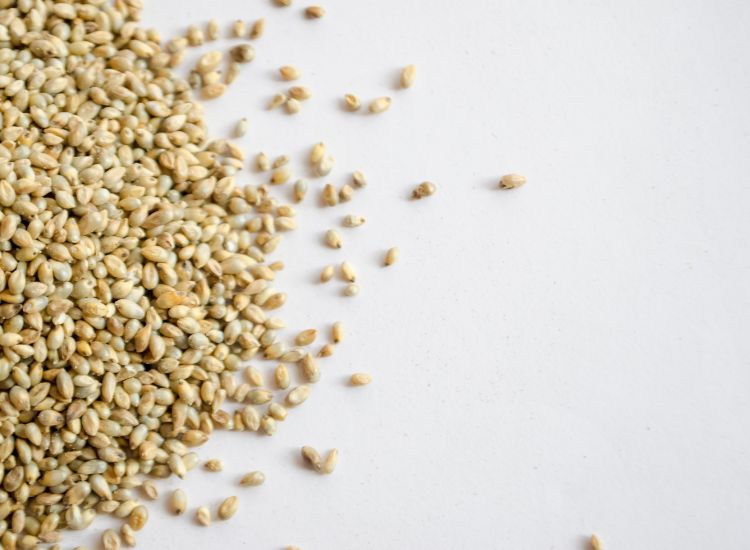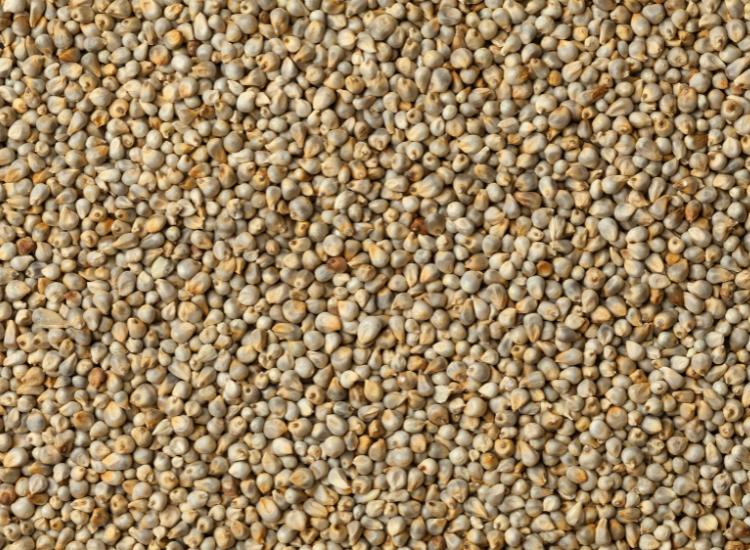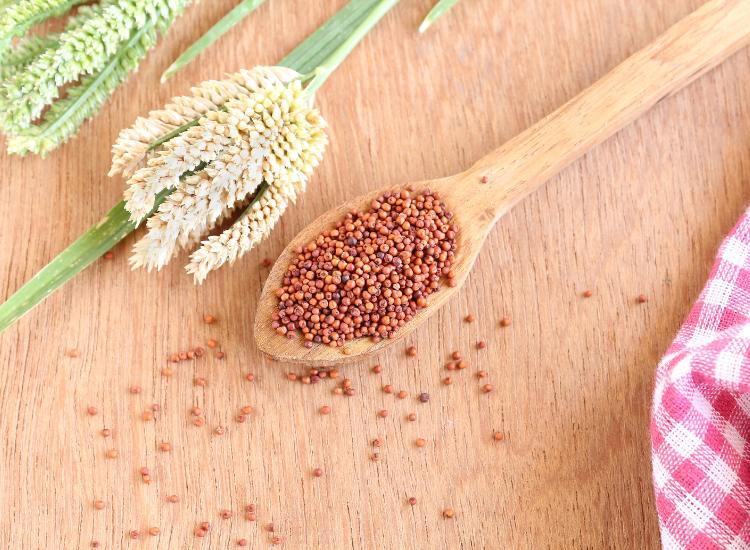
Have you ever come across a grain called millet in your grocery shopping or menu-reading journeys?
In India, we call it Bajra, Ragi, or Jowar, depending on the type.
However, the significance of this tiny, power-packed grain often remains hidden under the shadow of its more popular counterparts like rice or wheat.
Let’s decode this ancient grain, understand its nutrition profile and delve into the bountiful benefits it offers.
For thousands of years, millet has been a staple food for many cultures across Asia and Africa.

The origins of millet trace back to prehistoric times, with evidence suggesting it was a principal grain in ancient China and India.
Millet is a term that includes a group of small-seeded cereal crops, like Pearl Millet (Bajra), Finger Millet (Ragi) and Sorghum (Jowar), each with its unique nutritional benefits.
It’s cooked and consumed in various forms – from wholesome bread and porridges to pancakes and desserts, millet holds a versatile space in our culinary world.
Millet is a nutritional powerhouse. One cup of cooked millet provides about 207 calories, packed with high-quality protein, dietary fibre and beneficial fats.

It’s an excellent source of minerals like magnesium, phosphorus, iron and copper, essential for various body functions.
Moreover, it is rich in B-vitamins, especially niacin, B6 and folic acid. The best part? Millet is entirely gluten-free, making it a perfect grain option for those with Celiac disease or gluten sensitivity.
Also read https://dwaherbals.com/spirulina-the-green-miracle-for-health-and-wellness/
The consumption of millet is linked with numerous health benefits. It’s known to support heart health, thanks to its high fibre content that helps in lowering cholesterol levels.
Millet’s high magnesium content may aid in maintaining blood pressure and reducing the risk of heart attacks.
When it comes to digestion, the fibre in millet does wonders. It can help ease constipation, bloating and other digestive issues.
For those watching their weight or blood sugar levels, millet can be an excellent choice due to its low glycemic index, which causes a slower release of sugar into the bloodstream.

Above all, millet is rich in antioxidants, which help in neutralising harmful free radicals and reducing inflammation in the body.
While millet offers a host of benefits, it’s essential to consume it in moderation.
Excessive consumption can lead to an overactive thyroid gland due to its goitrogenic properties. Also
, although rare, some people may experience an allergic reaction to millet.
Incorporating millet into your diet is simple. You can use it to make rotis, add it to salads for a nutty flavour, or even make a wholesome porridge for breakfast.
Remember, millet should be stored in an airtight container in a cool, dry place to preserve its freshness and nutritional quality.
Each grain has its unique nutritional properties, but when compared to quinoa, rice, or wheat, millet stands out for its high fibre content and lower glycemic index.
Moreover, being gluten-free, it offers an excellent alternative for those with gluten intolerance, unlike wheat.
In conclusion, millet is a nutrient-dense, versatile grain that can add variety and nutrition to your diet. From heart health to weight management, millet plays a significant role.
Dr Sushil is a researcher and founder of D WA Herbals with objective of providing healthy longevity to society. His aim is to develop food and drink-based products by using the inherent qualities of traditional herbs by optimizing their effect through modern technology, making our products extremely user-friendly. The research is focused on various lifestyle issues such as anxiety, stress, metabolism, digestion, immunity and may more which impact the health and lifestyle.
© 2023 DWA HERBALS. All Rights Reserved. Designed by NXlogy